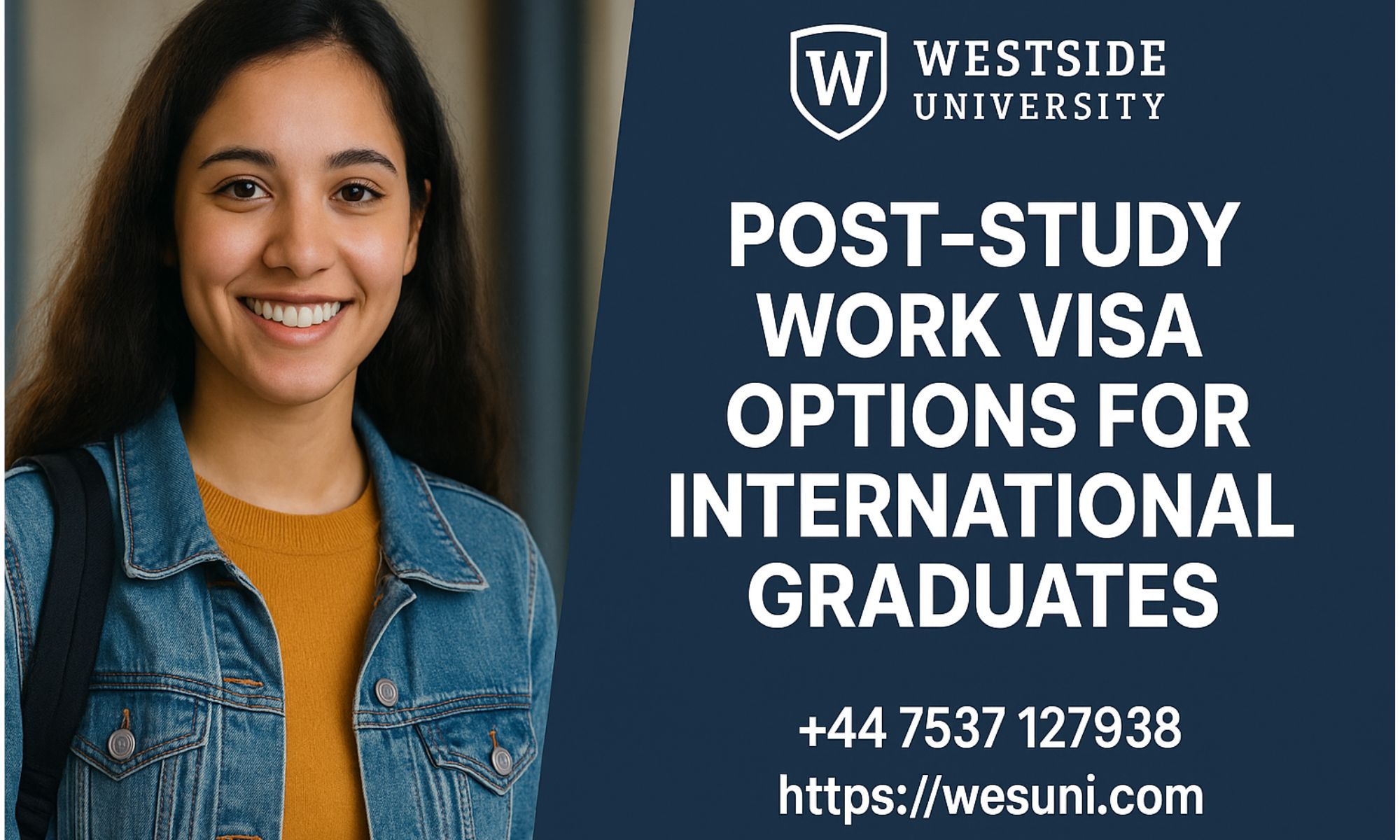Studying abroad opens doors to world-class education, cultural experiences, and life-changing opportunities. But for many international students, the real question arises after graduation: What comes next?
One of the most common goals is to gain work experience in the host country. This is where post-study work visas become crucial. These visas allow international graduates to remain in their host country, work full-time, and, in some cases, even transition to permanent residency.
In this detailed guide, we’ll cover the post-study work visa options for international graduates in the UK, US, and Europe—three of the most popular destinations for global students.
Why Post-Study Work Visas Matter
A post-study work visa benefits international graduates in multiple ways:
- Career growth: Gain practical work experience in your field of study.
- Financial independence: Earn income to pay back loans or support yourself.
- Networking opportunities: Build professional connections that can shape your career.
- Immigration pathways: Some visas act as stepping stones to long-term residency or citizenship.
Post-Study Work Visa in the UK
The UK has become increasingly attractive for international graduates due to its Graduate Route visa.
Graduate Route Visa
- Who can apply? International students who completed a degree in the UK.
- Duration:
- Bachelor’s or Master’s graduates: 2 years
- PhD graduates: 3 years
- Work rights: Full-time work at any skill level.
- Transition options: Graduates can switch to a Skilled Worker Visa if they find a qualifying job.
Skilled Worker Visa (Post-Study Transition)
- Requires a job offer from a UK Home Office-approved employer.
- Minimum salary threshold applies.
- Can lead to settlement (Indefinite Leave to Remain).
👉 Tip: If you’re planning to stay long-term in the UK, use the Graduate Route to gain experience, then transition to the Skilled Worker Visa.
Post-Study Work Visa in the US
The US offers post-study work opportunities mainly through OPT (Optional Practical Training) and H-1B visas.
Optional Practical Training (OPT)
- Who can apply? F-1 visa holders (most international students).
- Duration:
- 12 months of work authorization.
- STEM graduates can apply for a 24-month extension (total 36 months).
- Work rights: Must be related to the field of study.
H-1B Visa (Employment-Based)
- Employer-sponsored visa for specialized workers.
- Valid for 3 years, renewable up to 6 years.
- Highly competitive and subject to lottery selection.
👉 Tip: International graduates in STEM fields have an advantage due to the OPT extension and higher demand in the US job market.
Post-Study Work Visa in Europe
Europe offers diverse options depending on the country. Let’s look at some of the most popular destinations.
Germany
- Residence Permit for Job Seekers: Allows graduates to stay for up to 18 months to look for a job related to their degree.
- Once employed, students can apply for an EU Blue Card or residence permit.
France
- APS Visa (Autorisation Provisoire de Séjour): Non-EU graduates can stay for 12 months after finishing a Master’s to look for work.
- Successful employment can lead to a residence permit or work visa.
Netherlands
- Orientation Year Visa (Zoekjaar): One-year post-study work visa for international graduates from Dutch universities.
- Offers flexibility to work at any skill level.
Ireland
- Third Level Graduate Scheme:
- Bachelor’s graduates: Stay for 12 months.
- Master’s or PhD graduates: Stay for 24 months.
- Can transition to work permits like the Critical Skills Employment Permit.
Key Considerations Before Applying for a Post-Study Work Visa
- Eligibility requirements – Not all degrees or programs qualify.
- Application deadlines – Apply before your student visa expires.
- Costs – Some post-study visas come with application and healthcare fees.
- Work limitations – Certain visas allow work in any field, while others restrict jobs to your area of study.
- Long-term goals – Consider whether the visa can transition into permanent residency.
Advantages of Securing a Post-Study Work Visa
- Boost employability: Employers value graduates with local work experience.
- Stay competitive: Practical skills complement academic knowledge.
- Transition opportunities: A post-study visa often leads to longer-term options.
- Financial relief: Start earning while managing student loan repayments.
Challenges International Graduates May Face
- Visa restrictions: Work limitations may prevent you from entering certain industries.
- Employer sponsorship: Some jobs require an employer willing to sponsor you for long-term visas.
- Processing delays: Visa backlogs may disrupt employment plans.
- Competition: Popular destinations attract thousands of graduates annually.
👉 Solution: Start your research early, prepare all documents in advance, and explore multiple countries’ visa options to maximize opportunities.
Final Thoughts
For international graduates, post-study work visas are a bridge between education and career success. Whether you plan to stay in the UK, US, or Europe, these visas open the door to professional growth, financial stability, and even long-term settlement.
Your decision should depend on your career goals, field of study, and the opportunities available in your host country. By carefully planning your post-graduation pathway, you’ll set yourself up for success in the global job market.
✅ Call to Action
Ready to explore your post-study career opportunities abroad? 🌍
👉 Start your application today at https://wesuni.com/apply


